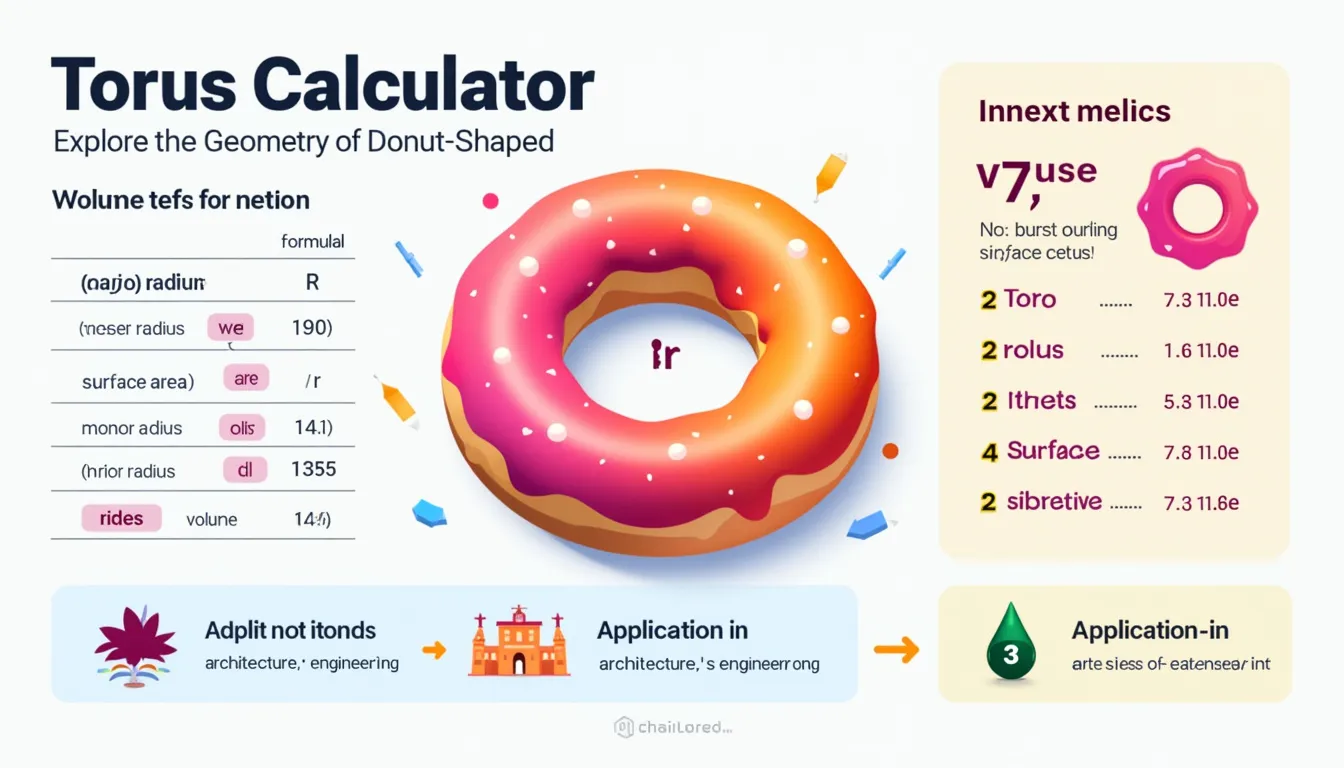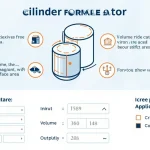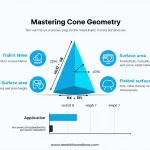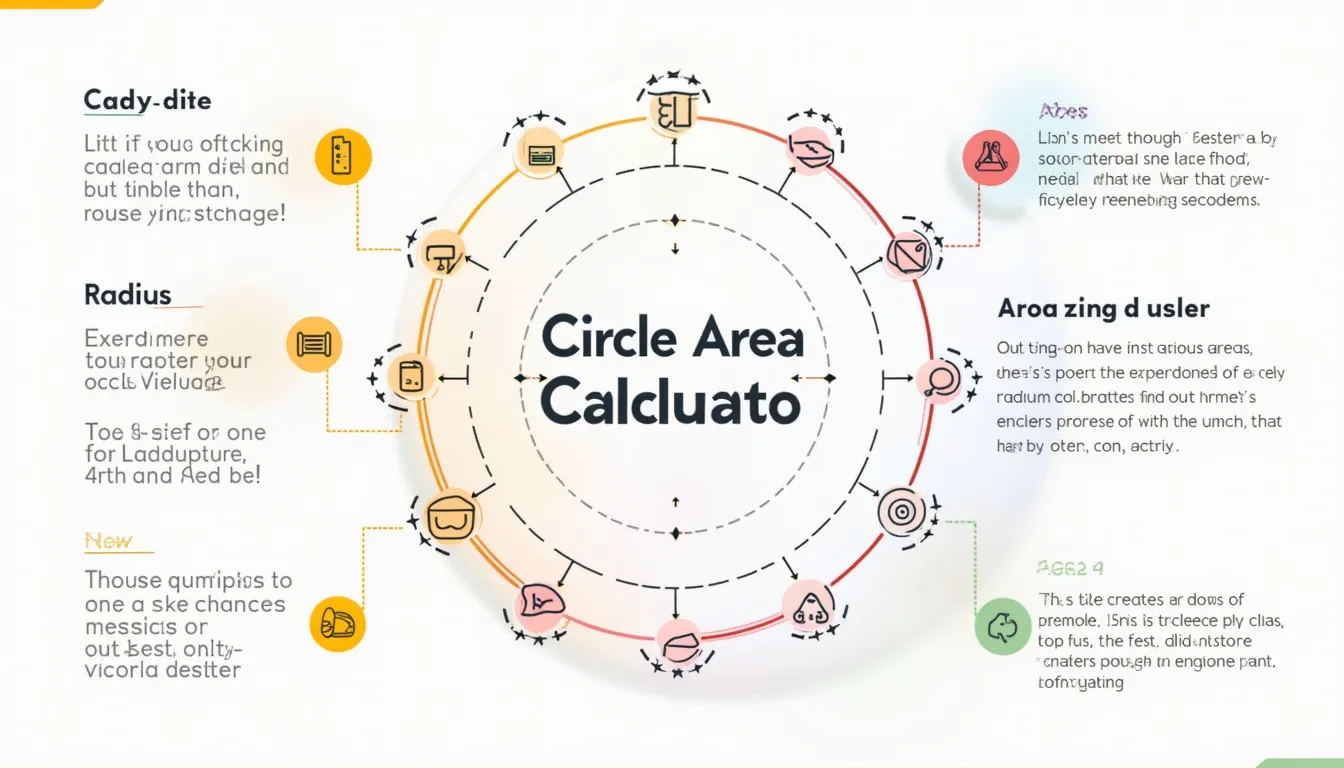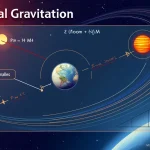Torus Calculator
Is this tool helpful?
How to use the tool
- Type your major radius (R). Example inputs: 12.2 units or 7.8 units.
- Type your minor radius (r). Example inputs: 4.1 units or 2.3 units.
- Press “Calculate”. The script validates R > r and positive values.
- Read the results. Volume appears in cubic units; surface area in square units.
Formulas applied
Volume
$$V = 2\pi^2 R r^2$$
Surface area
$$A = 4\pi^2 R r$$
Example calculation (checked twice)
- Input: R = 12.2, r = 4.1
- Volume: V = 2π²·12.2·4.1² ≈ 4048.13 cubic units
- Surface area: A = 4π²·12.2·4.1 ≈ 1974.71 square units
Quick Facts
- Formula constants: 2π² ≈ 19.74; 4π² ≈ 39.48 (Torus—MathWorld, https://mathworld.wolfram.com/Torus.html).
- Valid torus requires R > r (CRC Standard Mathematical Tables, 31st ed.).
- Industrial O-ring cross-sections range 1-13 mm (Parker O-Ring Handbook ORH 700, 2022).
- ITER fusion vessel major radius: 6.2 m; minor radius: 2.0 m (ITER.org, 2023).
FAQ
What is a torus?
A torus is a 3-D shape generated when a circle revolves around an external axis, giving a doughnut-like ring (Torus—MathWorld, https://mathworld.wolfram.com/Torus.html).
Why must R be greater than r?
If R ≤ r, the revolving circle overlaps the axis and the body collapses into a sphere or spindle, invalidating torus formulas (CRC Standard Mathematical Tables, 31st ed.).
How accurate is the calculator?
It uses exact analytic expressions; rounding occurs only at the displayed decimal places. Double-precision JavaScript math keeps error below 1 × 10⁻¹³ for typical inputs (ECMA-262 Spec §18.1.1).
Can I compute half or quarter tori?
Yes. Calculate the full value, then multiply by the fractional angle over 360°. For a half-torus use 0.5× results (Weisstein, 2003).
Does material affect results?
No. The tool outputs pure geometry. Density or cost calculations require separate material data (Ashby, Materials Selection 5e 2022).
What units does the tool use?
Units are arbitrary yet consistent. Enter both radii in centimetres to get cm³ and cm², or in inches for in³ and in² (NIST SP811, 2008).
How are toroidal reactors sized?
Commercial tokamaks target aspect ratios R/r between 3 and 5 to balance plasma stability and coil stress (IAEA Fusion Data, 2021).
Quote from a standard
“For a geometrically perfect torus, the generating circle’s centre must not intersect the axis of revolution.” – ISO 18431-4:2021.
Important Disclaimer
The calculations, results, and content provided by our tools are not guaranteed to be accurate, complete, or reliable. Users are responsible for verifying and interpreting the results. Our content and tools may contain errors, biases, or inconsistencies. Do not enter personal data, sensitive information, or personally identifiable information in our web forms or tools. Such data entry violates our terms of service and may result in unauthorized disclosure to third parties. We reserve the right to save inputs and outputs from our tools for the purposes of error debugging, bias identification, and performance improvement. External companies providing AI models used in our tools may also save and process data in accordance with their own policies. By using our tools, you consent to this data collection and processing. We reserve the right to limit the usage of our tools based on current usability factors.
